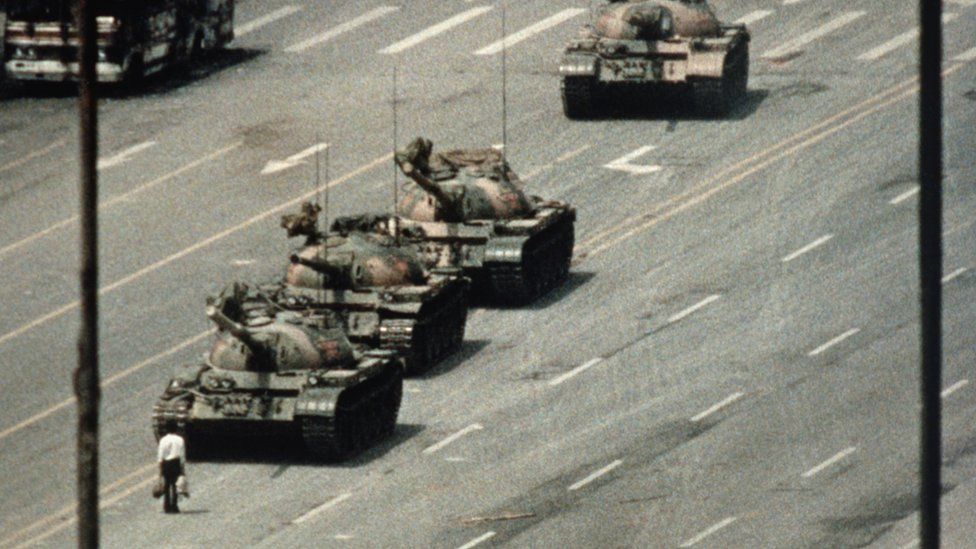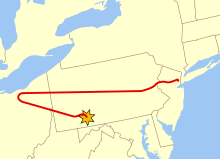Sturken writes that “Cultural memory is a field of negotiation through which different stories vie for a place in history.”(Sturken). To interpret the meaning of Sturken’s words, a good way to start is by looking at the definitions of wordings used in the sentence.
Cultural (adj.) : relating to the habits, traditions, and beliefs of a society
Memory (n.) : something that you remember from the past
Negotiation (n.) : the process of discussing something with someone in order to reach an agreement with them, or the discussions themselves
Vie (v.) : to compete with other to achieve or get something
History (n.) : (a record of) past events considered together, especially events of a particular period, country, or subject.
(definitions from Cambridge Dictionary: dictionary.cambridge.org)
As the saying goes: “History is Written by Victors.” (quoted by Winston Churchill). What we know as “History” nowadays about an event happened 50 years ago might not reflect the exact fact at the time. We may have a hard time to confirm the genuineness of the history that we are told unless we were there to witness. Though history usually sound objective, but it could easily be controlled by the power or the regime. What is left in the history book could be filtered, selected by the power.
For example, Tiananmen Square Massacre happened in China on June 4th & 5th, 1989, could be considered history rewritten be the regime. Information of the event is still unable to be found on Chinese Search engines such as Baidu. The victims’ families form a group called “Tiananmen Mothers” that hope the Chinese government to admit and explain what happened at the square.
Iconic Picture taken on June 5th at Tiananmen Square (BBC News https://www.bbc.com/news/world-asia-48445934)
Sometimes, history could be the result of negotiation. History could be what the majority of the people agree on in certain events. Since not everyone was at a place to witness everything happen. For example, at war times, since not everyone could survive, different people may come back with different stories because they may have slight differences in their experiences or their experiences were from different point of view. It is then up for the people to decide which side to trust, what is trusted will then be considered “history”. Sometimes, not the story with the highest authenticity would be considered “true” in society, rather what society think fits their value would be considered “true”.
An example for this would be what happened on United Air Flight 93 on September 11, 2001. After being hijacked by terrorists, the plane eventually crashed in Somerest Country, Pennsylvania.
 UA 93’s flight path (Wikipedia, United Air Flight 93 https://en.wikipedia.org/wiki/United_Airlines_Flight_93)
UA 93’s flight path (Wikipedia, United Air Flight 93 https://en.wikipedia.org/wiki/United_Airlines_Flight_93)
It was believed that the intended target was the US Capitol Building. However, it was believed that the bravery of passengers on flight 93 that stopped the flight reaching Washington D.C.. Though no concrete evidence could prove the attack failed is contributed by the passengers, most still believed in the story. Not questioning the bravery of passengers on flight 93, but the story the public chose the believe in to somewhat extent it the explanation that fits the “American Spirit”.
To conclude, my interpretation to Sturken’s quote is that history may not be 100% of the truth, but rather what the power or what we the people want to believe.
Your interpretation of Sturken’s quote really resonates with my interpretations. First off I appreciate that you input your definitions of some key words so readers like me can more accurately again a better understanding of what you really mean. As one would know, even words can be interpreted in a variety of ways depending on both the context of where it was said and who said it. Speaking of interpretation, I too agree that “History is written by the Victors” (Winston Churchill). In other words that we have heard from this class, that the majority in authority control the master narrative. I do have two question for you Gordon. As you know, there are many variations in history. Different people will remember the same
historical event in different ways depending on their perspective and knowledge of the historical event. This only is exacerbated when the event is old, forcing people to recall from there memory which may or may not be entirely accurate or reliable. So first question: 1. Do you think there is objectivity in History?aka is there a universal truth in history which contains no interpretations or biases, only what happened is true? And second question: 2. How reliable is the recollection of past events as a method of gaining knowledge? In other words, Is memory good enough to be used to create historical knowledge?
Those are really hard questions, Ethan! Hopefully things we will tease out together as the year goes on…
I thought your inclusion of the Tiananmen Square Massacre and how it is interpreted in China was interesting. In high school I got to talking to one of my classmates who happened to be a Chinese international student, and he was overwhelmingly in favour of how the protesters were treated. He called President Deng a “hero” for his actions, a sentiment which to put it lightly isn’t necessarily shared in Canada where we seemingly understand the full gist of what happened. Just goes to show how different cultural memory can be, and how easily people can be manipulated by those in power. Really helps to cement that the idea that you touched on, that what we know to be history may not necessarily be an accurate portrayal of events, but rather events told to fill a narrative. Good post Gordon